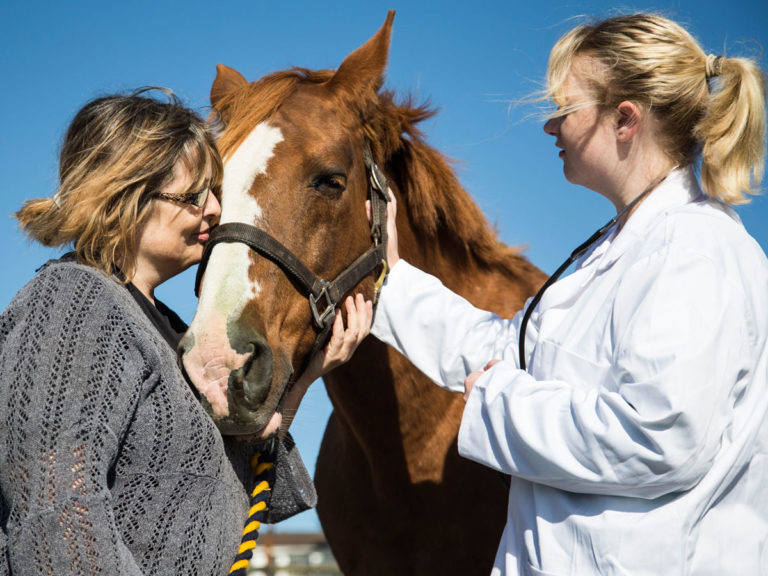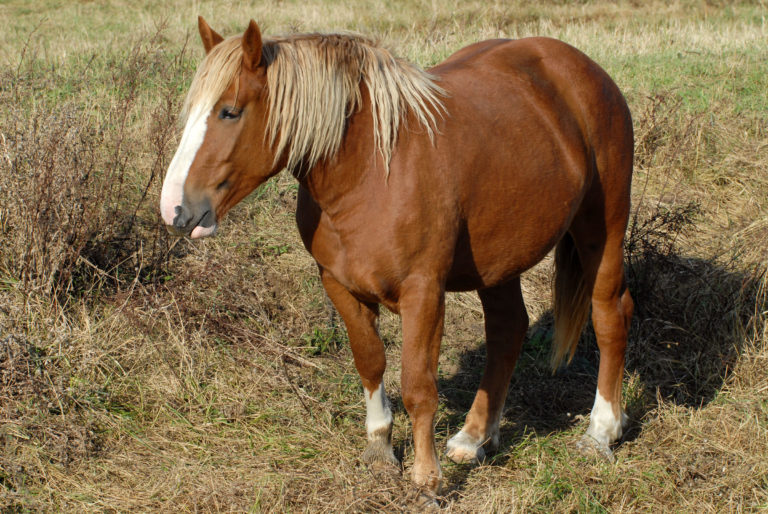
At the 68th Annual AAEP Convention, Dr. Ciera Guardia presented “Seeding the Field to Grow New Practice Owners.” In the presentation, she described how her mentor, an established equine veterinarian and practice owner, helped her financially and educationally with becoming a solo practice owner. This novel concept allowed the speaker, over a period of six years, to establish and then own 100% of an equine practice. And, she accomplished this without any initial investment, she reported.
“One unique path to incentivize equine practitioners to remain in equine practice involves the financial support and mentorship of an established practice owner. Such an investor can realize both a financial and personal return on their investment,” she stated.
The Value of a Veterinary Mentor
Many newer graduates lack the financial means, confidence and business skills to open their own practices. Therefore, having the guidance and support of a mentor can make a big difference, the speaker said. She described how her mentor first asked her to consider her vision for her professional and personal life. Her mentor told her to imagine the practice she would want to form to bring that vision to life. Next, the mentor guided her through the needed steps to form a business. Some steps included researching the demographics in the chosen practice area, establishing a permanent address, naming the practice, and planning the service offerings. The established practice owner then added the “Doing Business As,” or DBA, to his pre-existing veterinary business. The new practice satellite was many miles away from the parent practice, she added.
Dr. Guardia described her mentor assisting her with advice on setting up accounts at distributors, laboratories, banks, and service providers such as Global Vet Link for federal and state health documents. Her mentor also assisted with practice credit card applications, forming accounts with shipping firms, obtaining a DEA license, registering radiology equipment with the State Department of Health and Safety, obtaining dosimeter badges and acquiring necessary equipment. In addition, she said, her mentor offered advice on forming the new practice website and social media presence.
The mentor provided diagnostic equipment such as a digital radiography unit, an x-ray generator and an ultrasound, as well as other necessary equipment. The mentor also created a payment plan for the new practice to pay off these purchases over several years.
Vested Purchase Agreement
They formalized a written agreement to have the new practice transferred to the mentee as a vested purchase over a certain number of years, she continued. The established practice owner paid his mentee a base salary, or a percentage of gross profit, whichever was greater, each year. After the initial 12-month period, with a five-year vested purchase agreement of 50% of the ownership of the practice, in months 13-24 she received a 10% net profit share and 10% equity, followed by a 20% profit share and 20% equity the following year, with a 50% ownership share being obtained by the end of the fifth year, she explained.
With the vested purchase agreement, at the end of the fifth year, the speaker owned 50% of the practice. She then had the opportunity to purchase the remaining 50% from her mentor, she said. An independent practice evaluation determined the current value of the practice at the time of the transition. Based on that evaluation, they agreed upon a buy-out payment plan, she continued. The mentor held an amortized loan at a fixed interest rate to be paid off over 10 years for the purchase of the remaining 50% of the practice. In return for her mentor’s initial investment of time and money, he received monetary profits and the sale of his 50% equity. He also received the knowledge that he helped an equine practitioner achieve success through his generosity, she stated.
Final Thoughts
In closing, the speaker concluded “There are distinct financial advantages to practice ownership, as the owner has compensation that includes profits as well as salary for their efforts as a veterinarian. In addition, the ability to be the decision maker allows a veterinarian to build a career that matches their values, aspirations, and skillset. Being the owner of a practice may allow the opportunity to achieve increased personal career satisfaction and financial benefits that make equine practice a more sustainable choice for the individual. Although there are certainly increased responsibilities with small business ownership, it is my opinion that the rewards far exceed the challenges.”
Disclaimer from sponsor: This content is subject to change without notice and offered for informational use only. You should consult with your individual business, financial, legal, tax and/or other medical providers with respect to any information presented. Synchrony and any of its affiliates, including CareCredit, (collectively, “Synchrony”) makes no representations or warranties regarding this content and accept no liability for any loss or harm arising from the use of the information provided. All statements and opinions in the article are the sole opinions of the author. Your receipt of this material constitutes your acceptance of these terms and conditions.








